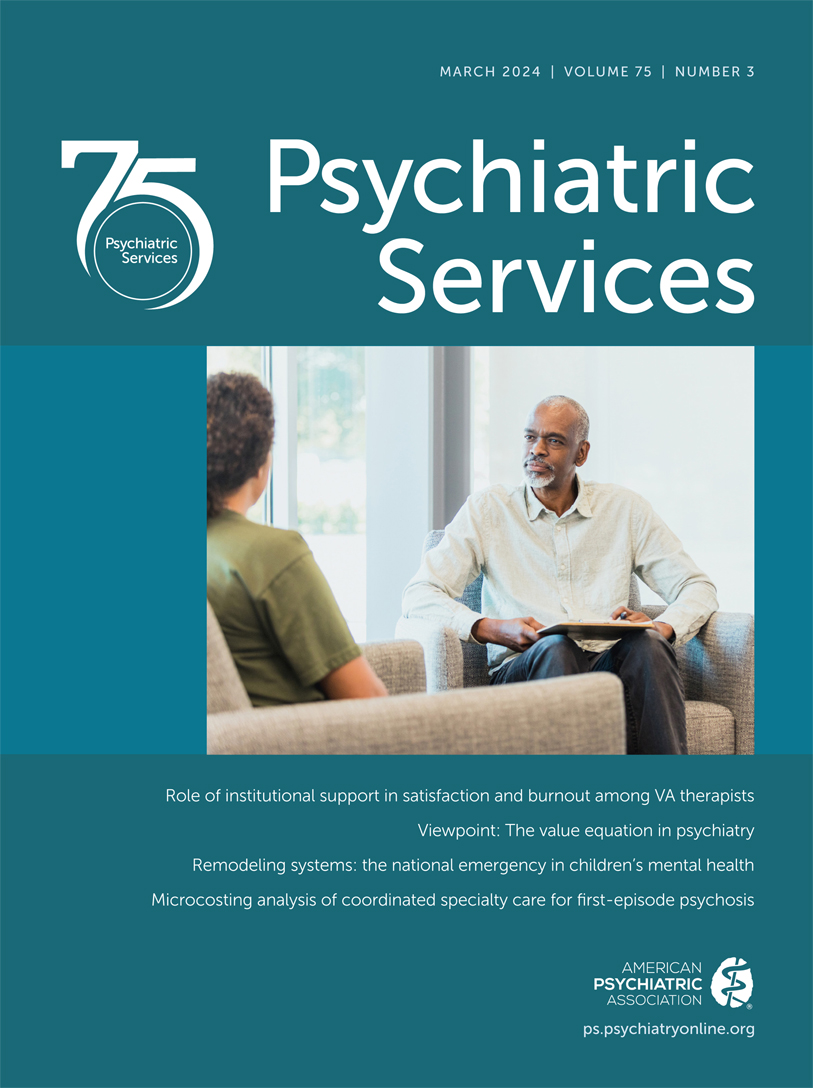Role of Institutional Support for Evidence-Based Psychotherapy in Satisfaction and Burnout Among Veterans Affairs Therapists
Abstract
Objective:
Burnout is widespread among psychotherapists and leads to negative mental and other health outcomes, absenteeism, and turnover. Job resources, including institutional support for evidence-based practices, can buffer against burnout and may improve satisfaction among therapists. The Veterans Health Administration (VHA) is the nation’s largest integrated health system and employs 23,000 therapists, including psychologists, social workers, and counselors. The authors assessed associations between perceived institutional support for evidence-based treatment and satisfaction and burnout among VHA therapists.
Methods:
This analysis used data from the VHA’s national 2018 Mental Health Provider Survey. Responding therapists (N=5,341) answered questions about the quality of mental health care and job satisfaction. Multilevel logistic regression models were used to predict burnout and satisfaction. The authors tested availability of evidence-based treatment and measurement-based care (MBC) as predictors; analyses were adjusted for therapist workload, demographic characteristics, and potential clustering by facility.
Results:
VHA therapists had less burnout and more job satisfaction when they perceived receiving institutional support for evidence-based psychotherapy (EBP) and MBC, irrespective of whether the analyses were adjusted for workload. Less difficulty in scheduling EBP was significantly associated with decreased likelihood of burnout (OR=0.83, p<0.001) and increased satisfaction (OR=1.09, p=0.008). Less difficulty ending psychotherapy was significantly associated with decreased likelihood of burnout (OR=0.89, p=0.002) and increased satisfaction (OR=1.12, p=0.004).
Conclusions:
Support for evidence-based practices, including EBP and MBC, was closely linked to VHA therapists’ satisfaction and burnout. Expanding support for therapists to provide evidence-based treatment may benefit therapists, patients, and the health care system.
Access content
To read the fulltext, please use one of the options below to sign in or purchase access.- Personal login
- Institutional Login
- Sign in via OpenAthens
- Register for access
-
Please login/register if you wish to pair your device and check access availability.
Not a subscriber?
PsychiatryOnline subscription options offer access to the DSM-5 library, books, journals, CME, and patient resources. This all-in-one virtual library provides psychiatrists and mental health professionals with key resources for diagnosis, treatment, research, and professional development.
Need more help? PsychiatryOnline Customer Service may be reached by emailing [email protected] or by calling 800-368-5777 (in the U.S.) or 703-907-7322 (outside the U.S.).



